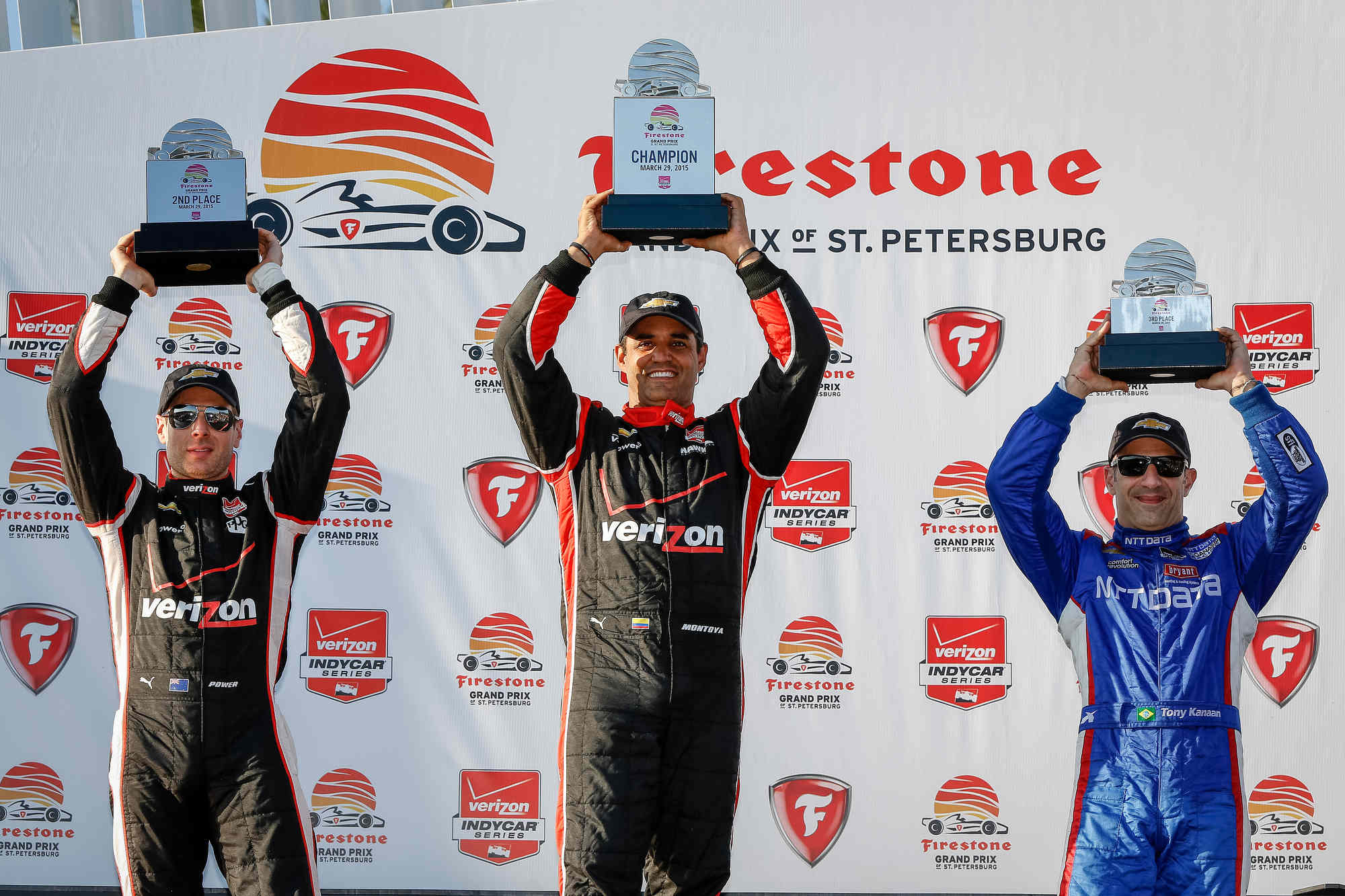Did Chevy pull a fast one? (Update)
Question: So, Chevrolet was penalized 128 manufacturer points for "non-minor" changes to 11 of its 12 engines following the St. Pete race. Does this smell of cheating? Jeff, New Albany, Ind.
Answer: No, it doesn't, at least it doesn't to me. It smells more of a concern for a component, perhaps a valve spring (and Chevrolet confirmed that today). Look, a change requires a penalty, and obviously Chevrolet accepted that. It's certainly better to take the points penalty rather than have engines break later on. Chris Berube, Chevrolet's IndyCar program manager, said an issue was found during durability testing, and the change was made "as a precaution." Here's the quote from Jim Campbell: "We identified a batch of valve springs that, due to a process change at one of our suppliers, may fracture before the full mileage requirement. We notified IndyCar of the issue and obtained approval to change the valve springs. Eleven of our 12 engines were updated following the St. Petersburg race. Based on lower accrued mileage, the current plan is to address the 12th engine after the race at Barber Motorsports Park." And about those points: 128 of them. Do you really think that given the strength of the Chevrolet teams that the deficit to Honda won't be made up? In fact, I predict Chevrolet will be on top of the standings by the 500, maybe sooner. My question is, who has the engine that didn't get the fix? Curt Cavin/Indy Star
04/06/15
 |
| It was a Chevy parade at St. Pete. Has the manufacturer found a way to around the rules with their decision to change engines prior to the engine-change threshold? |
Call me a cynic, but I wouldn't be the least bit surprised if Chevrolet pulled a fast one on Honda and INDYCAR with their wholesale engine change out for 11 of its12 teams announced earlier today. This, interestingly enough, after Chevrolet-powered cars swept the top-6 positions in the season-opening Firestone Grand Prix of St. Petersburg.
Officially, Chevrolet with the approval of INDYCAR has swapped 11 of its 12 power plants (no announcement as yet what car did not get an engine change) for "non-minor engine repair." These changes come prior to the 2500-mile threshold for changing engines in-place to contain costs. The penalty to the manufacturer (other than the cost of changing engines) is losing points in the manufacturer championship. Drivers don't lose grid spots, nor are they docked points. The only penalty is the manufacturer is docked 20 points in the manufacturer championship, per car.
In other words: whoopdie freaking doo!
Sure, Chevrolet would prefer to win the manufacturer title. But as you would expect they're much more concerned with winning races, the drivers’ championship and the Indy 500. And I suppose this could be another Long Beach 2012 when Chevy decided to change all its engines after an issue was discovered in testing.
But unlike then when the teams had to incur a 10-grid spot penalty, there essentially is no penalty. Thus is it fair to ask: did Chevy have this switch planned all along? Have they essentially chosen to make a farce of the manufacturers' championship in order to fulfill their other goals?
To be very clear, I'm not criticizing such a tactic per se. Also, with much of the focus on the introduction of aero kits prior to the season, Chevrolet may have made decided that the rules surrounding the Chevy and Honda V6 turbo power plants, represented an opportunity for them to gain an edge.
Fair enough. And this should not be read as a criticism of Chevy.
However, such a tactic does expose the series as not being able to control the manufacturers. And is this a tactic we should expect from the manufacturer(s) going forward? Has Chevy simply made a cost-benefit analysis that the consequences of a change-out prior to the 2,500-mile threshold are not a big enough deterrent? While one could argue Chevy is belittling the spirit of the rule, they are following the letter of it by simply accepting the penalty.
Heck, could there continue to be a scenario where Chevy dominates races, yet comes away with negative manufacturer points week after week after week? While it sounds ludicrous, they swept the top-6 spots at St. Pete yet have negative points as things stand now.
 |
| Has Team Penske once again found that 'unfair advantage'? |
Furthermore, one has to ask, where might the hand of Roger Penske be in all of this? The Captain has long been known to seek that 'unfair advantage', which he had in the Can-Am days and in Indy car seasons of yesteryear, but has alluded him over the last decade in this era of spec racing. This offseason, he assembled a four-car armada with the signing of Simon Pagenaud. He did this absent any clear sponsorship for his team. He has also not won an Indianapolis 500 in a by his standards extremely long six years.
Has Penske in conjunction with Chevrolet found a new way to outmaneuver the series and gain that long sought 'unfair advantage'?
Last, what is Honda teams to make of all this? Will Michael Andretti and other Honda owners cry foul realizing that Penske and company have outfoxed them again? Does Honda come back swinging or do they follow the path of Toyota, Lotus, Mercedes-Benz, Nissan, Alfa Romeo, Porsche, Ford and others who ceased their involvement in Indy car racing when they become uncompetitive?
Hard to say. But it seems that after a few years of relative peace and harmony, INDYCAR may have an explosive situation on its hands. At the very least, this is far from just another "engine repair."
Brian Carroccio reporting for AutoRacing1
